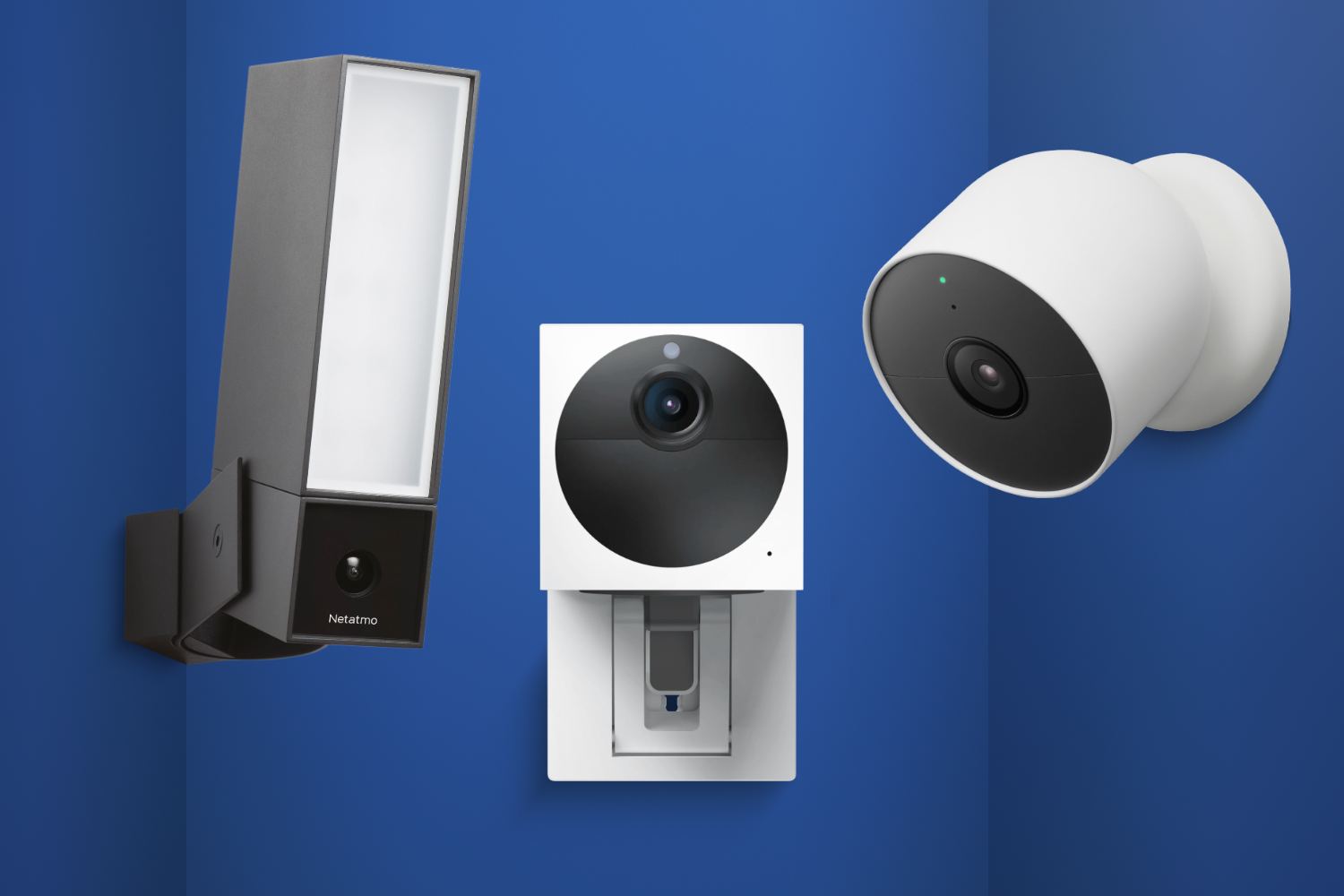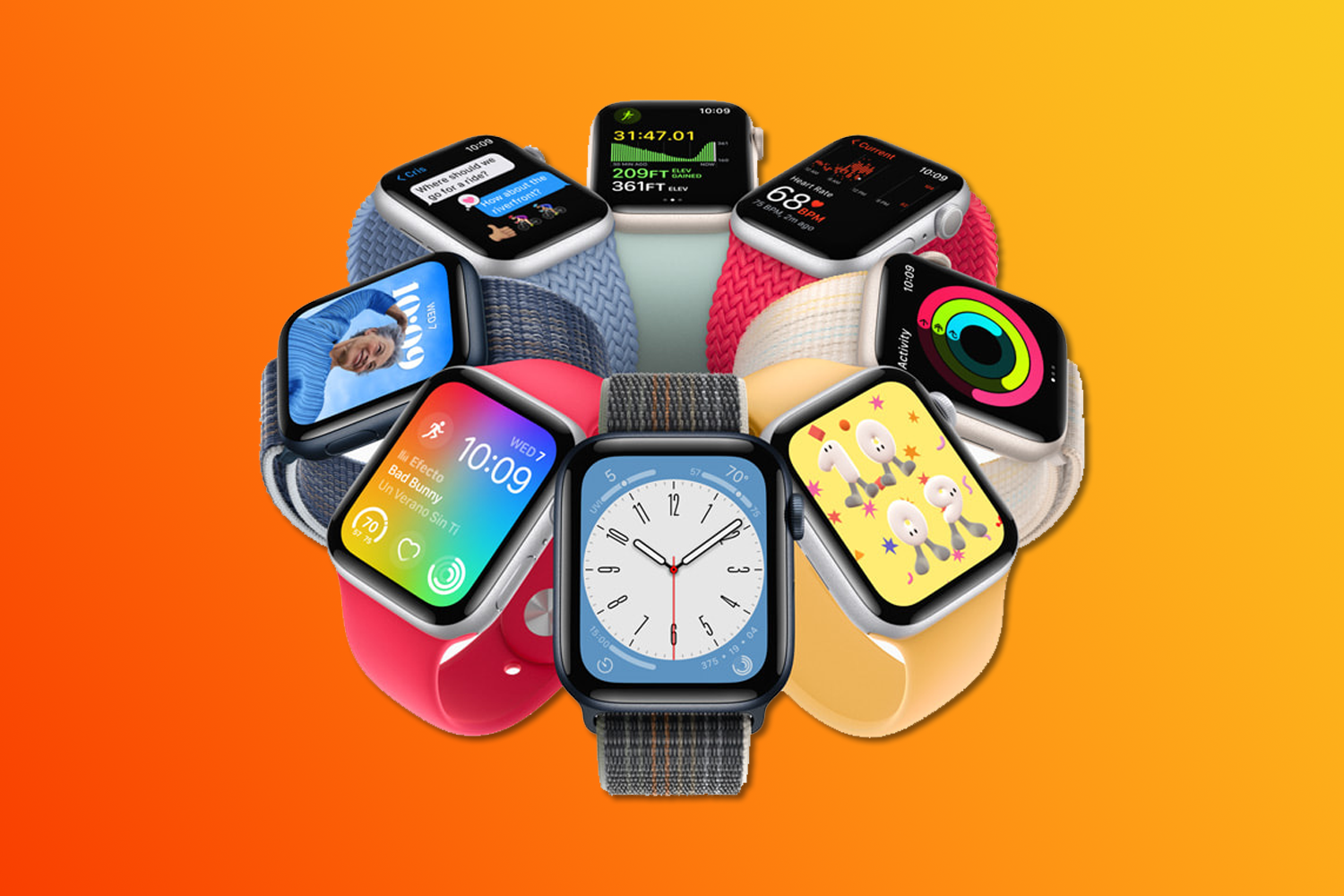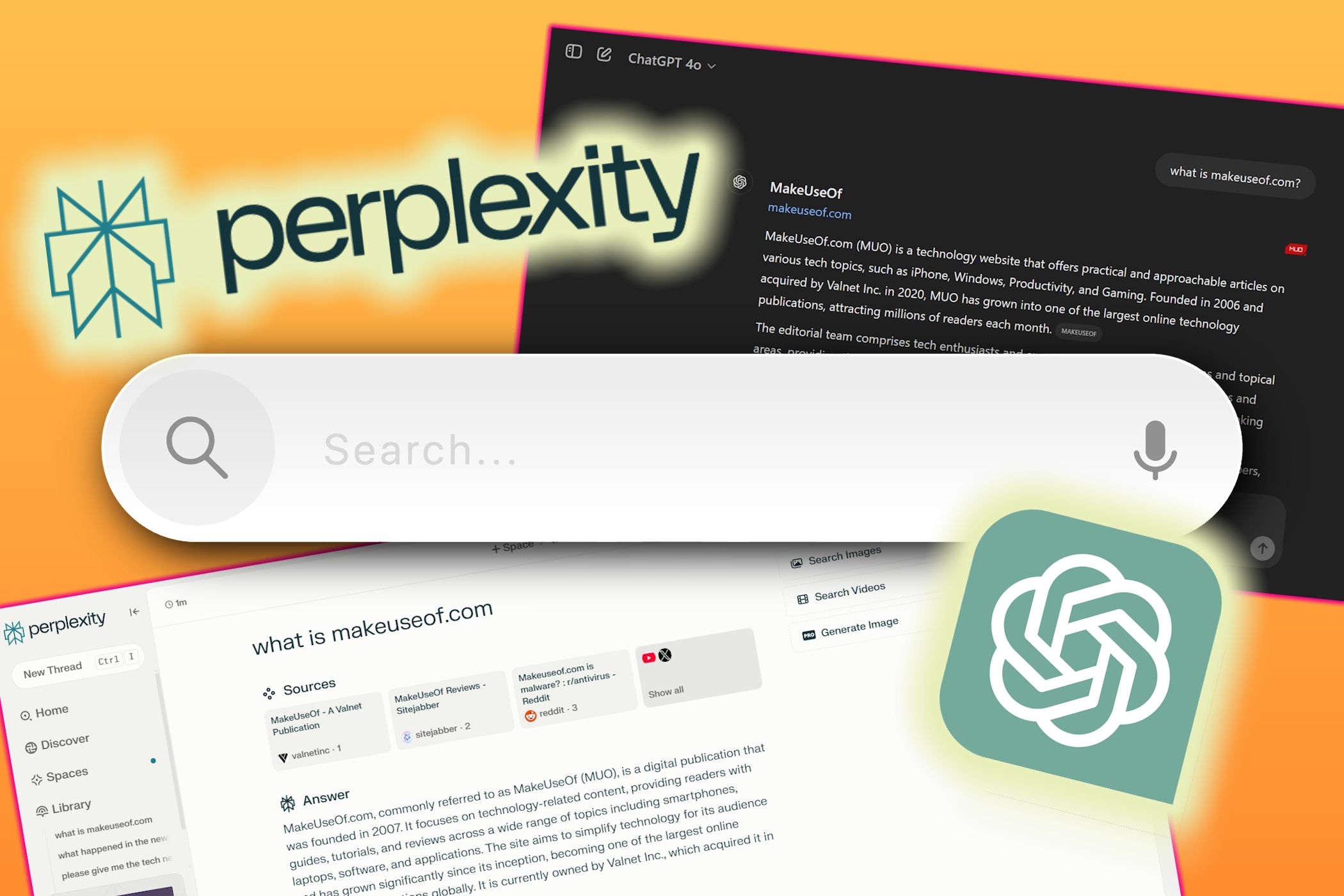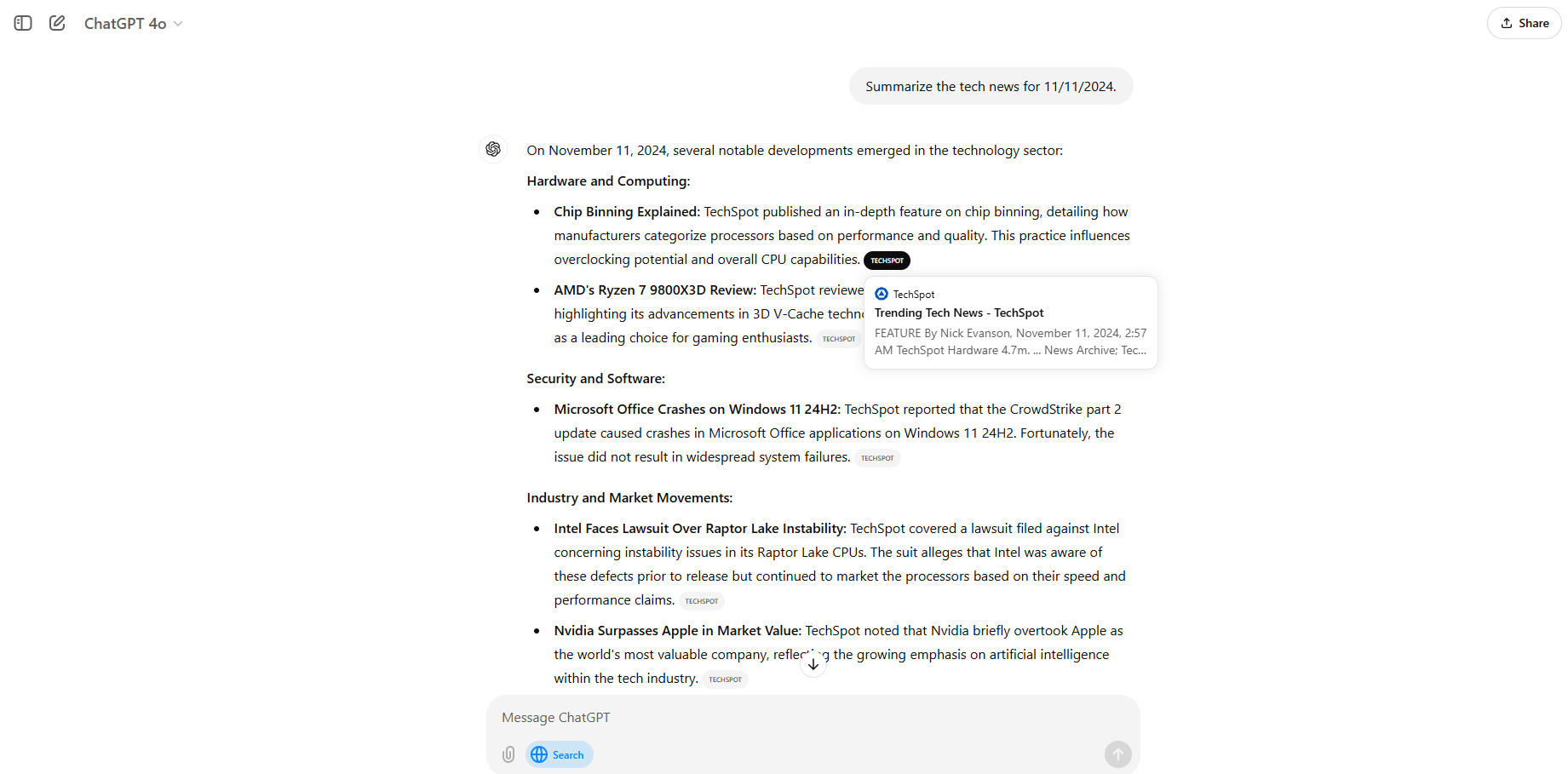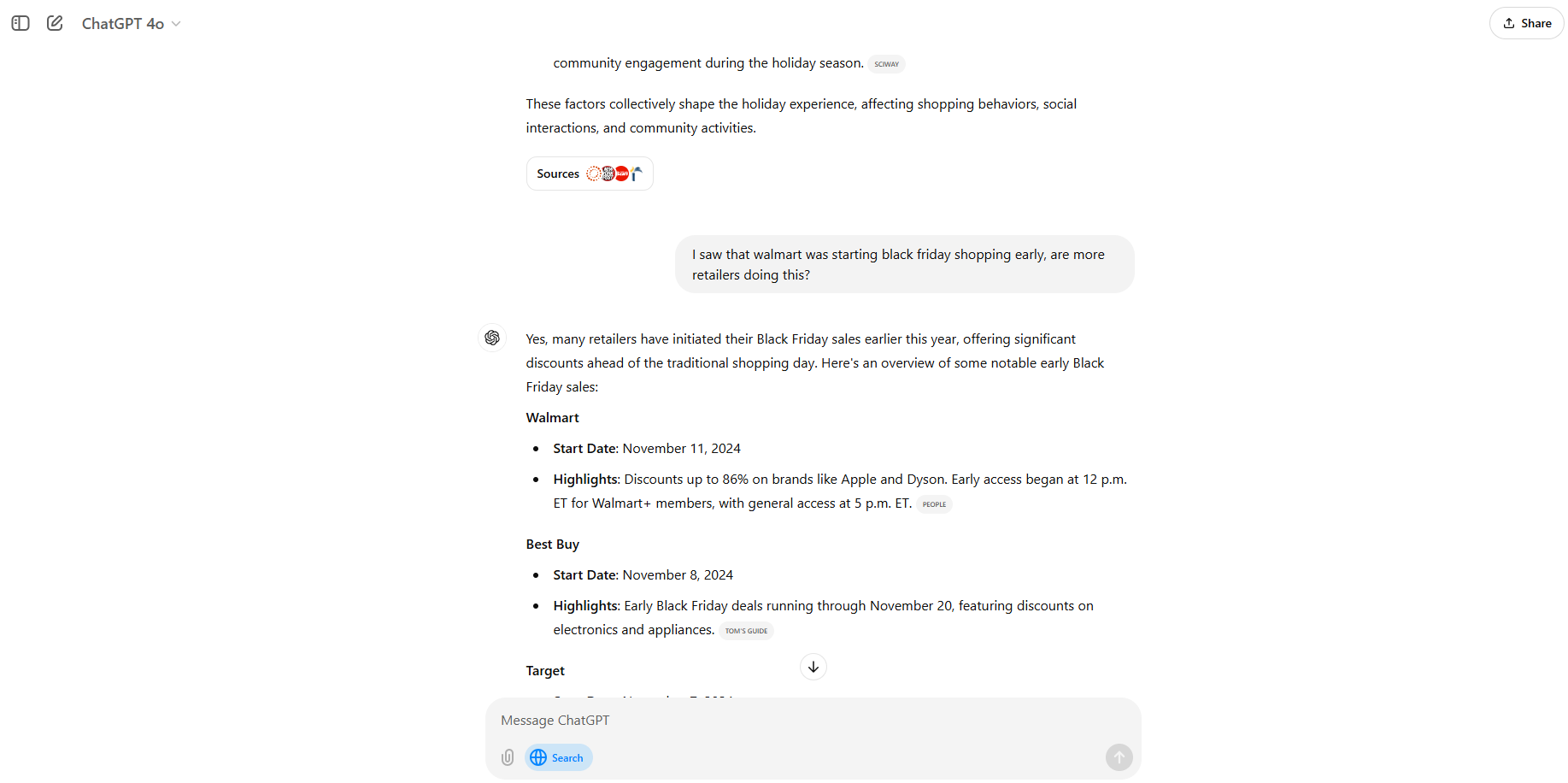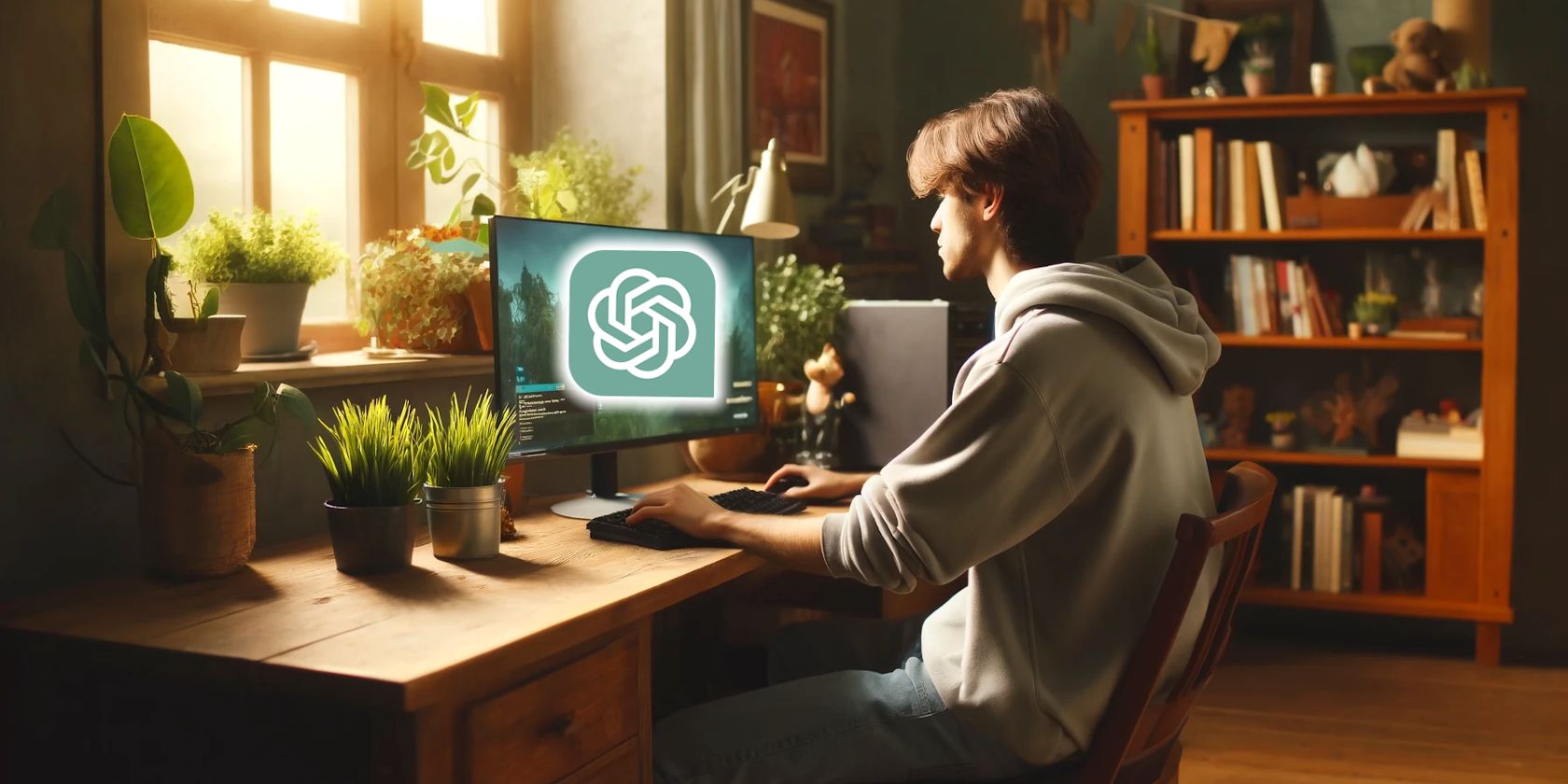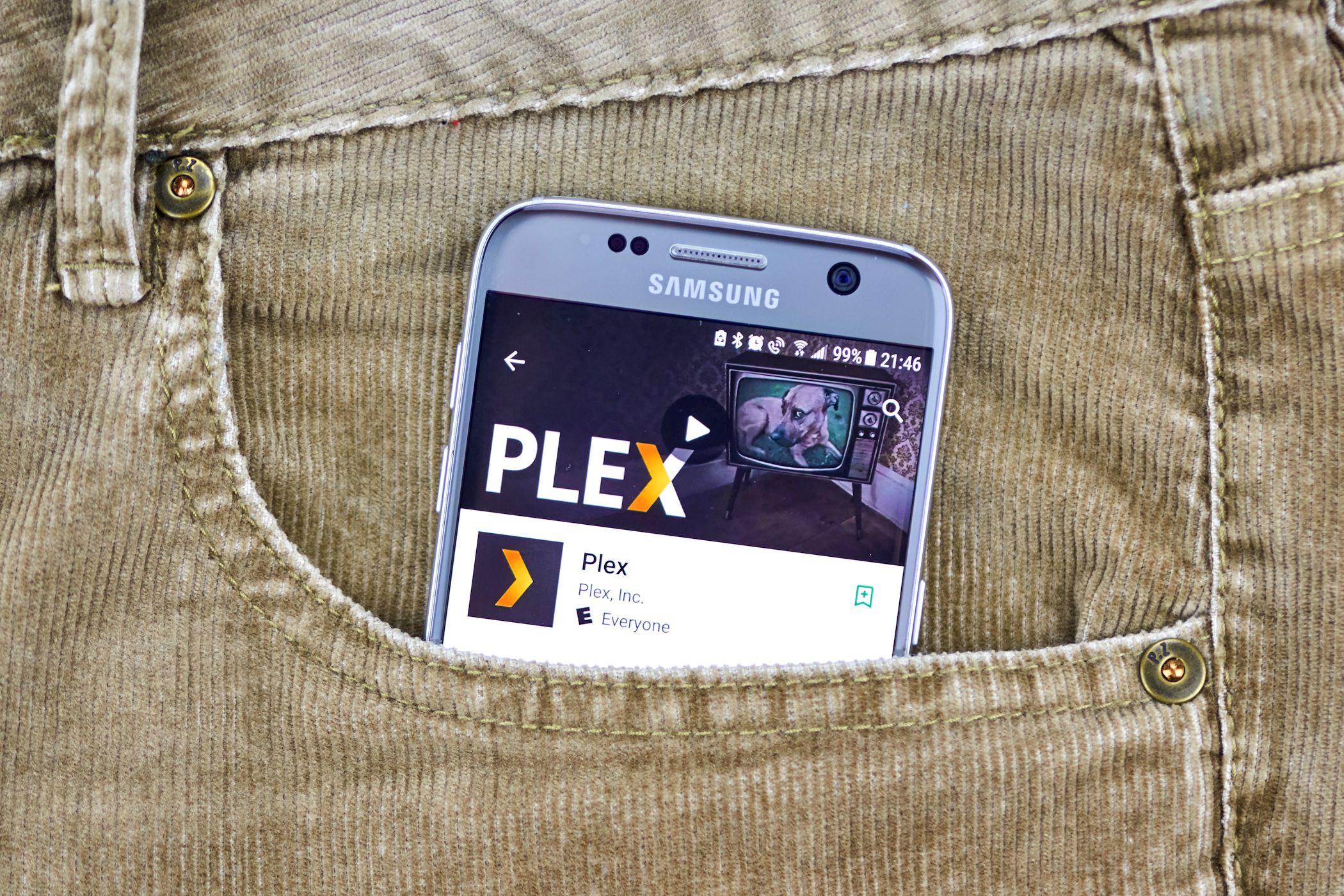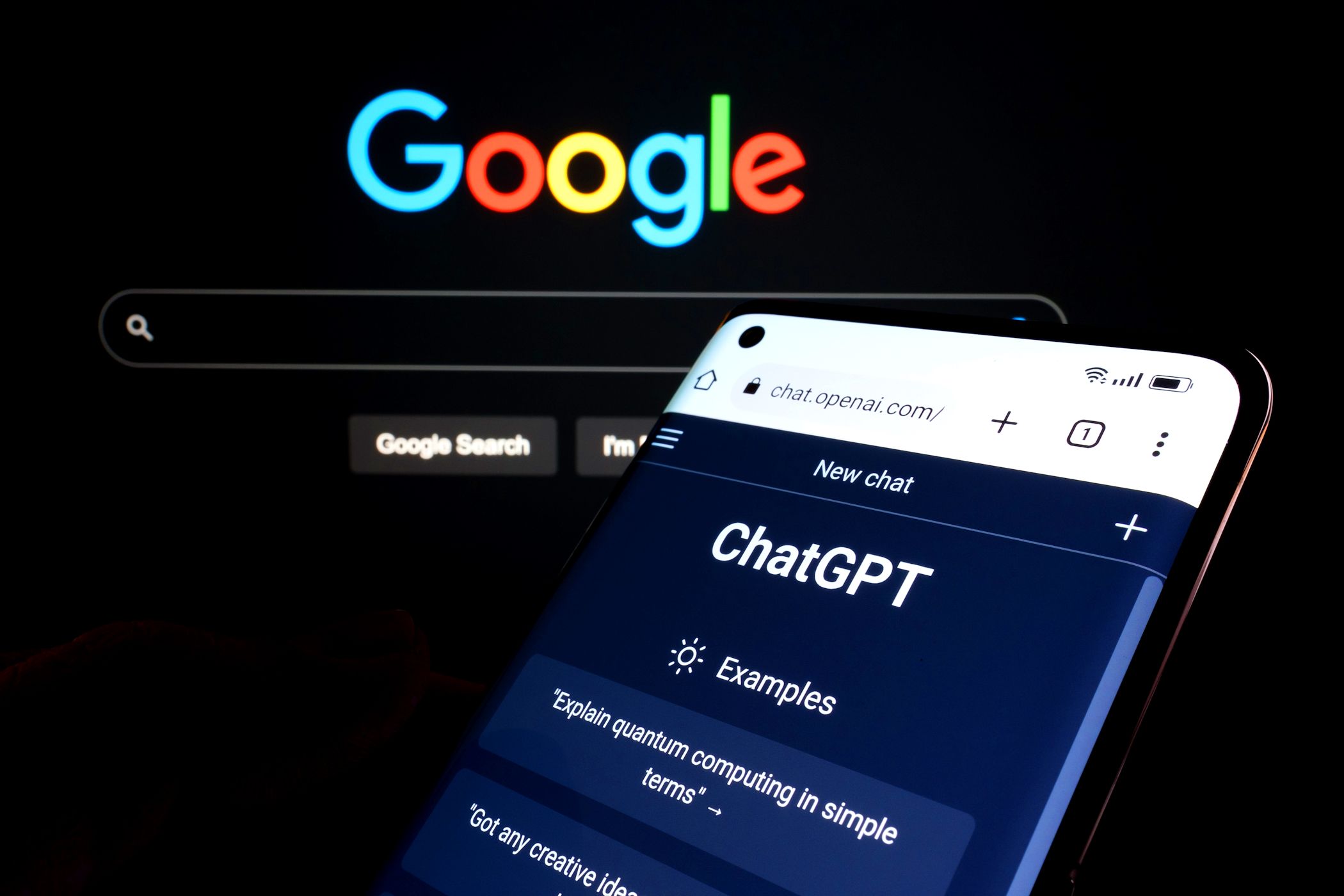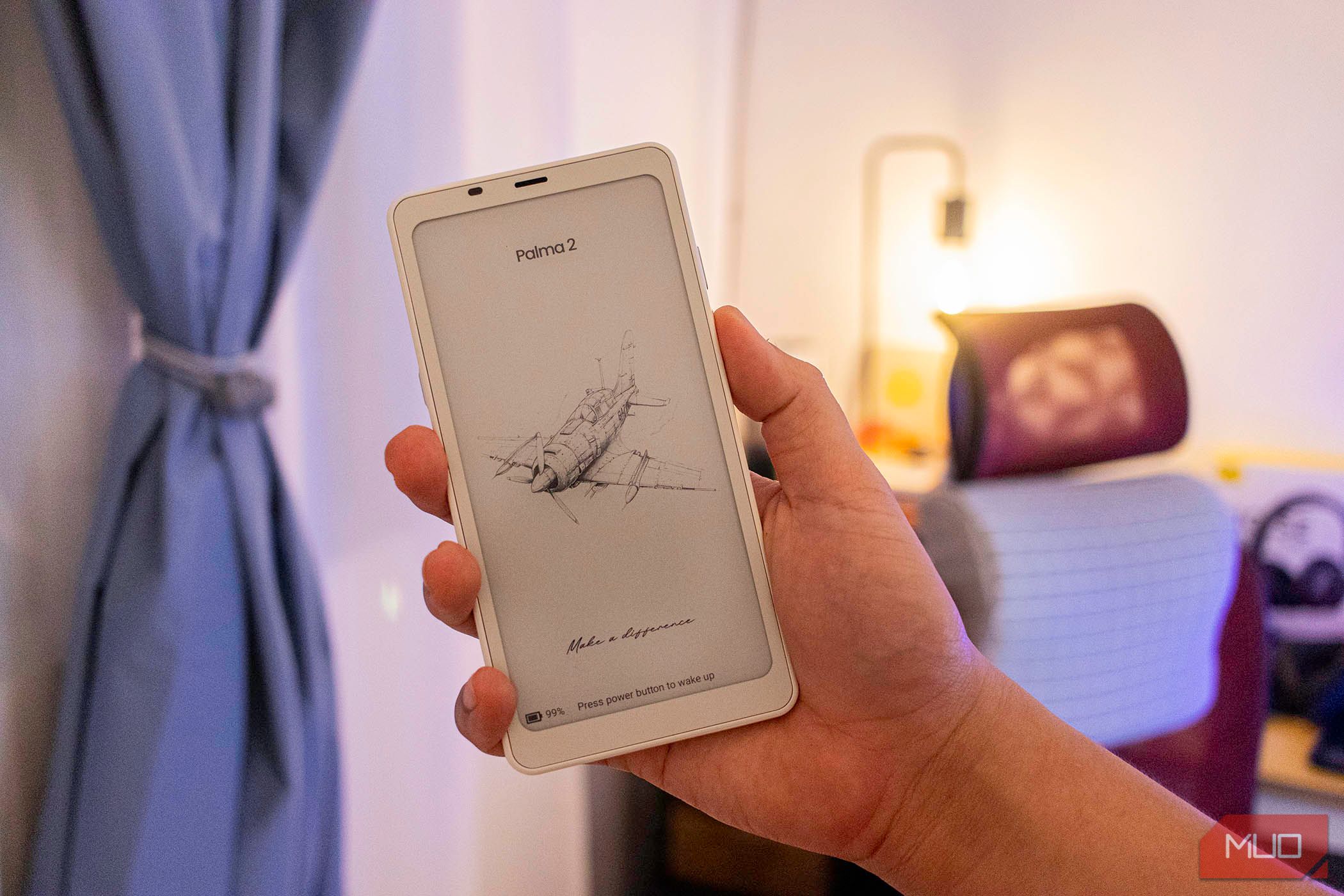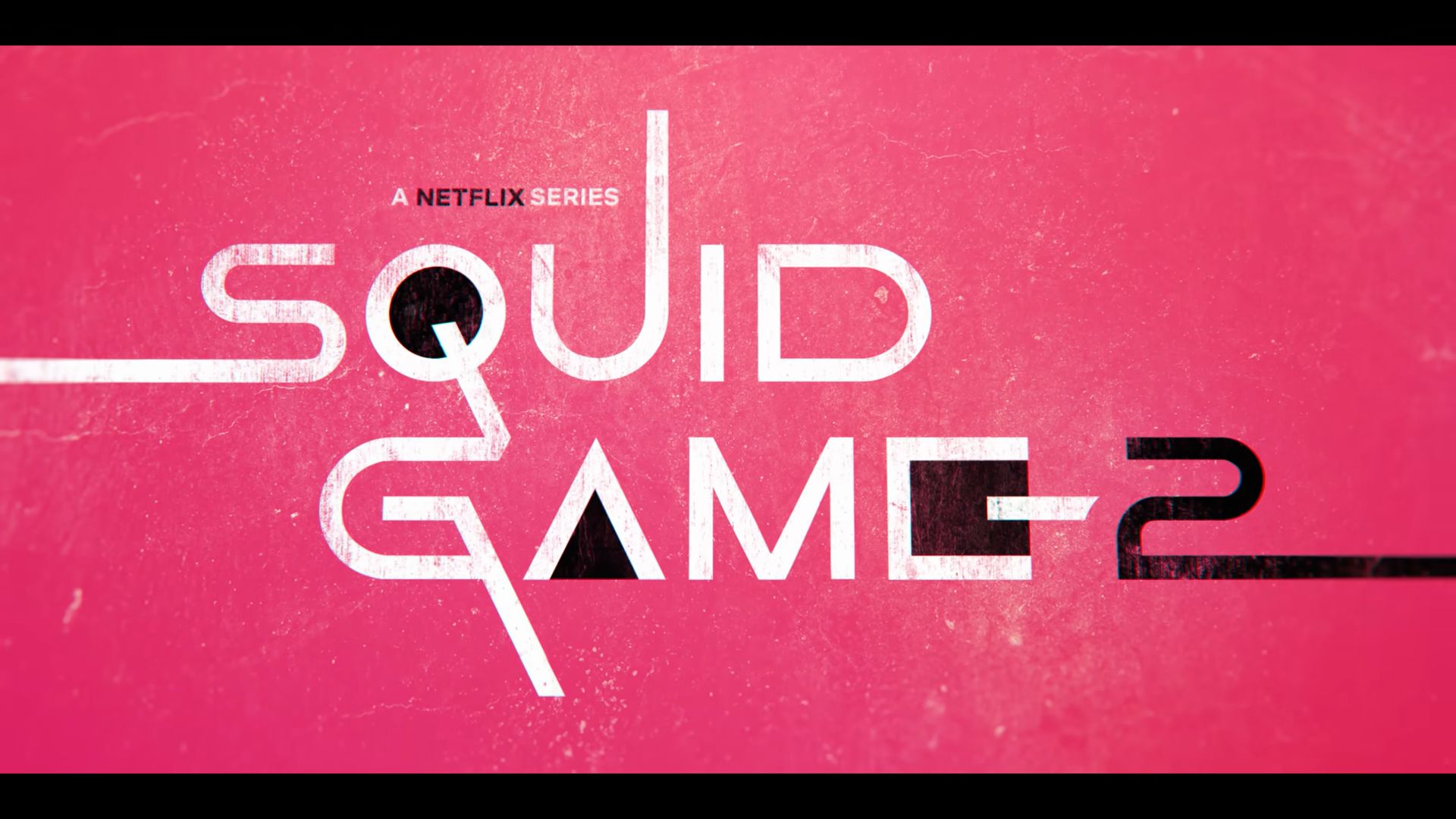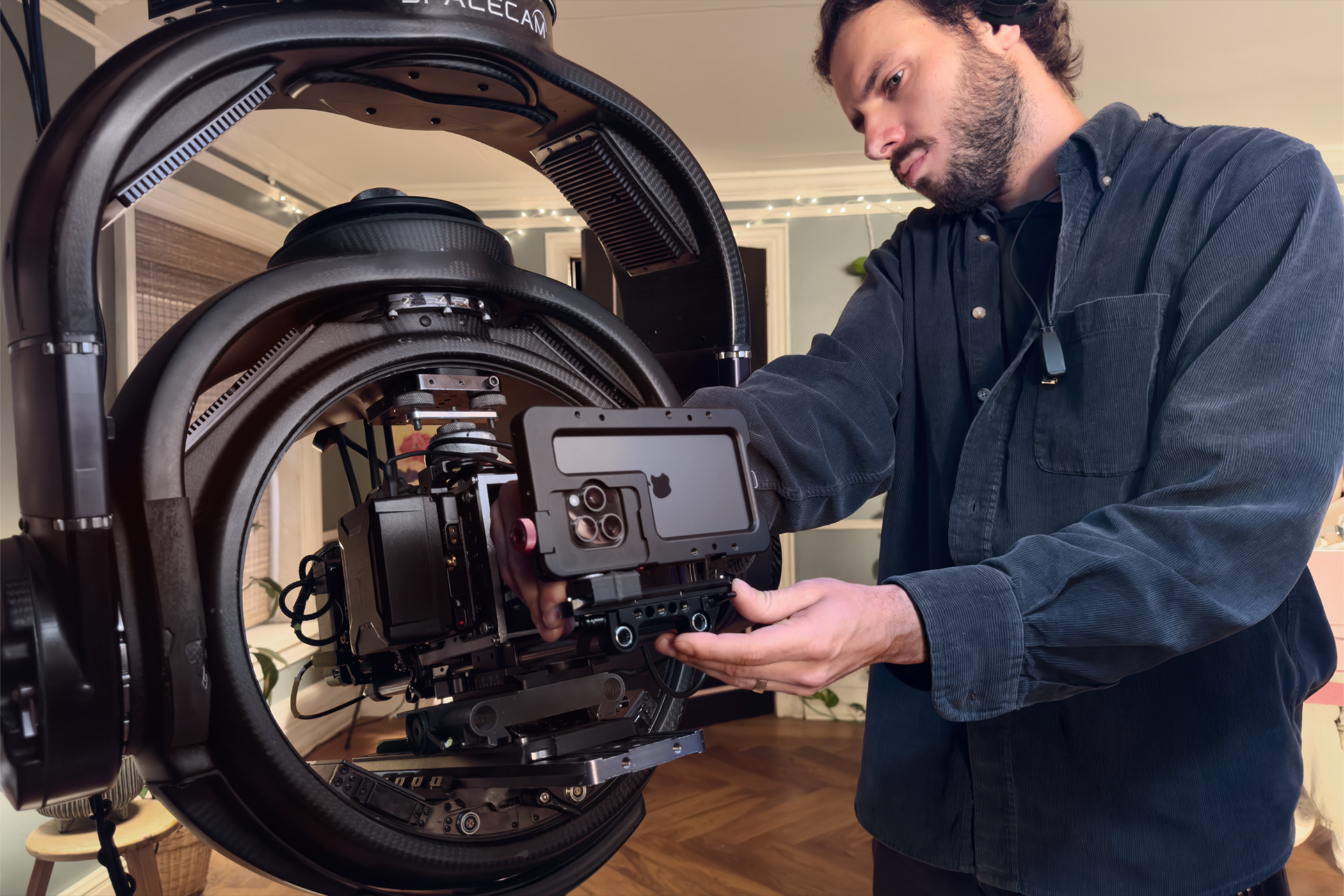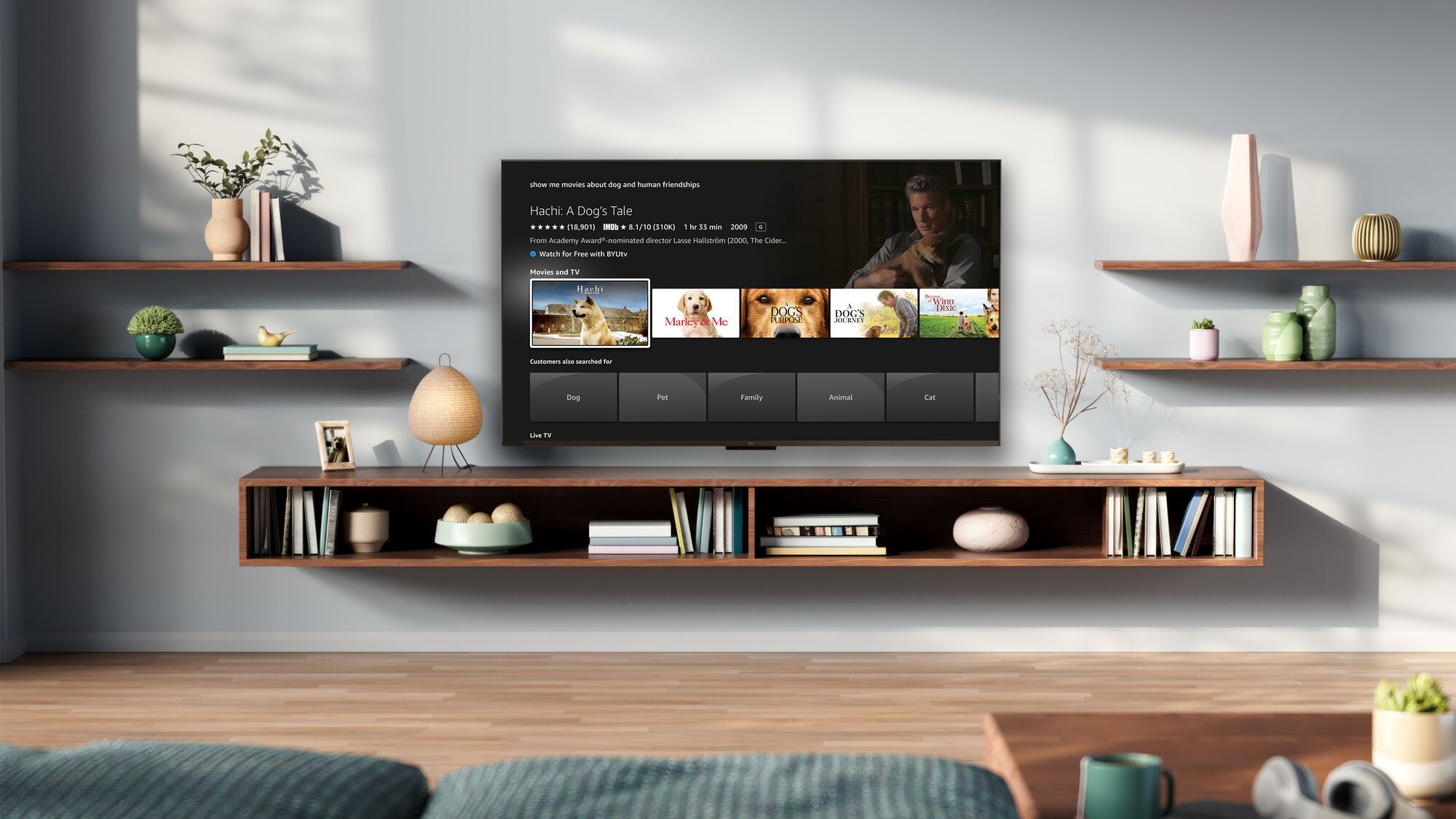Key Takeaways
- ChatGPT’s new real-time search feature offers up-to-date responses, direct links to sources, and seamless follow-up questions.
- ChatGPT’s integrated experience, conversational flow, and real-time info are winners when added the sourcing with web search.
ChatGPT’s latest search update has made me reconsider my preference for Perplexity. While Perplexity has been reliable for a long time, ChatGPT’s new capabilities have me returning to the original generative AI chatbot.
Perplexity was my go-to search assistant. It delivers reliable, source-backed answers. It’s versatile enough for both productivity and research tasks. I could complete entire research projects with ease, and the way Perplexity presents sources and data intuitively makes navigating search results easy. I also really like its ability to handle follow-up questions, allowing me to dig deeper into related topics. This kind of control and transparency is a major plus for boosting productivity, plus Perplexity’s clear references made fact-checking convenient.
What Is ChatGPT’s Search Feature?
OpenAI launched ChatGPT Search, adding a new dimension to the tool for me. Now, it pulls real-time information from the web, giving me up-to-date responses on trending topics, news, and even sports scores, all with sources in the chat. Perplexity has always been great for this, but adding this feature to ChatGPT means I can do everything I need with a single tool, making my workflow much smoother.
I also love how ChatGPT keeps the context from previous questions, making follow-up conversations effortless. The flow feels natural, and I can dive deeper without losing track.
Perplexity vs. ChatGPT Search: Which Offers a Better Experience?
When I compare Perplexity and ChatGPT, it’s clear they have distinct strengths and weaknesses. Both have made significant strides in providing concise information, but be cautious of relying on them as your only sources of information for critical research.
Perplexity stands out for its clarity and precision, especially when I need verifiable, referenceable data for research. Its evidence-backed answers are easy to trace back to specific sources, which boosts my confidence in their accuracy. I also appreciate how Perplexity breaks down complex topics into digestible pieces and suggests related searches, making my research easy and efficient.
On the other hand, ChatGPT has become much more useful for me when I need real-time, up-to-the-minute information on trending topics. Its new search feature makes interactions more dynamic, and ChatGPT’s ability to retain context means I can dive deeper into a subject without having to re-explain my questions. This contextual flow really shines when exploring complex topics in a conversational way.
That said, neither platform is perfect. Perplexity often requires well-crafted prompts to get in-depth answers, while ChatGPT can be inconsistent in linking to reliable sources. Still, I see both tools improving with every update, and they each have their own unique value, depending on what I need.
Why ChatGPT is Winning Me Over
Even though I’ve always appreciated Perplexity, ChatGPT’s new features are winning me over. It’s incredibly convenient to go from asking a generative AI question to getting up-to-date search results without switching apps. Instead of juggling multiple tools to find and verify answers, ChatGPT gives me an all-in-one experience that saves time and makes my searches much smoother.
I also love how ChatGPT maintains the conversational flow. It remembers my previous questions, which makes follow-ups feel natural and efficient, more like a continuous conversation rather than a series of disconnected queries.
Of course, some areas still fall short, like consistency and nuance, which seem to be common challenges for AI chatbots. For example, ChatGPT sometimes misses the emotional depth or contextual subtleties you expect from a human-written summary. But I have to admit, its recent improvements have made using it a much better experience. In many ways, it blends what I love about Perplexity with the added flexibility of real-time information.
That said, ChatGPT still has some inconsistencies regarding source reliability. While the real-time information is handy, the links it provides aren’t always the most reputable. This is where I think Perplexity has a slight edge; I can always rely on it for accuracy and well-documented references.
I still appreciate Perplexity for its accuracy and reliability, but ChatGPT’s search feature has given it a competitive edge. The real-time information, seamless transitions, and comprehensive answers are making it harder and harder to stay away.
Both tools have value, and I still turn to Perplexity when I need precise, well-referenced data. However, ChatGPT’s combination of generative responses with real-time search results has made it my preferred choice for a broader range of questions. The convenience, conversational depth, and up-to-the-minute information make it a compelling option that’s tough to resist.
